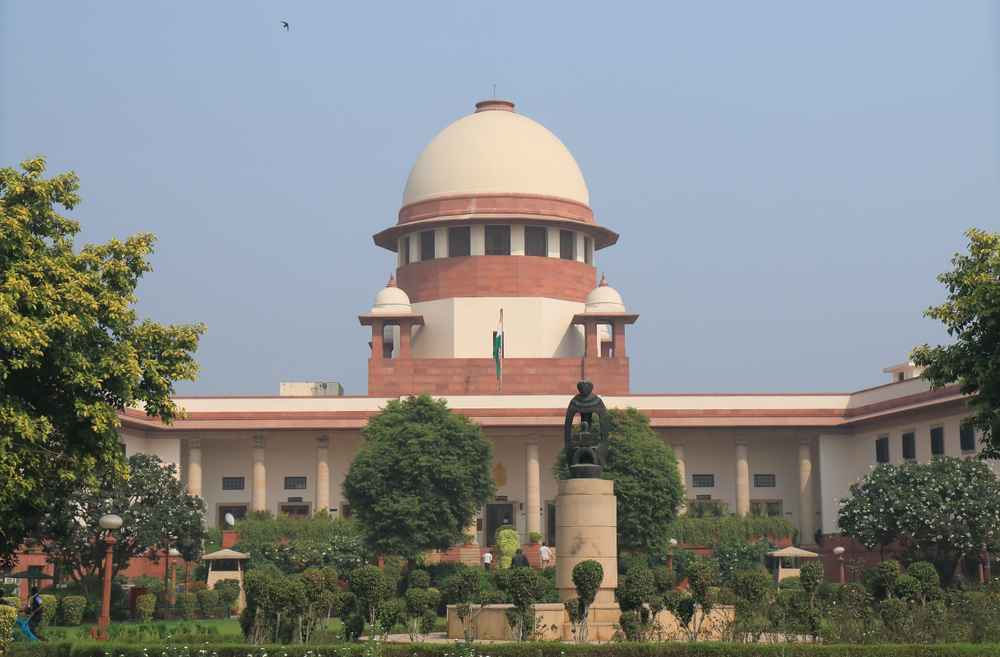The Supreme Court will take up on Friday a public interest plea that has sought a directive to the central government to set up a “committee” to scrutinise all complaints under the sedition law before any formal FIR is registered.
The petitioner, Yogita Bhayana, a social activist, said the law was being misused and cited a recent sedition case the BJP-ruled Karnataka government had filed against the management of a primary school over a satirical skit critical of the new citizenship regime and Prime Minister Narendra Modi.
Police had also arrested the headmistress of Shaheen Primary and High School in Bidar and a student’s mother over the January 21 play staged by students of Classes IV, V and VI. Both have since got bail.
The petition comes in the backdrop of a debate over rising instances of sedition cases against citizens for views seen as critical of the government.
Bhayana, who filed the PIL through advocate Utsav Bains, said she had been constrained to approach the court after researching the Bidar case and concluding that the Karnataka government had violated the fundamental rights of citizens.
In a Facebook video, a girl playing an elderly woman’s part is seen pleading with an official that she has no documents.
Another child can be heard saying: “The government is asking Muslims to leave India.”
To this, a third child asks the girl playing the elderly woman: “Amma (Mother), Modi is asking us to show documents of our father and grandfather. If not, he is telling us to leave the country.”
The girl replies: “If anyone asks for documents, hit them with slippers.”
Following a complaint, an FIR had been registered under penal code sections 124A (sedition), 504 (provoking breach of peace), 505(2) (statements promoting enmity), 34 (act done by several persons in furtherance of a common intention) and 153A (promoting communal hatred).
Bhayana, who heads an NGO, People Against Rape in India, said the case violated the constitutional rights to free speech guaranteed under Article 19 and to life and personal liberty under Article 21. The PIL quoted media reports to say that police officers questioned a child on who taught her the offending dialogues.
The child is said to have pointed at her mother, prompting the police to question the mother. The mother, a widow, said she had not specifically taught the dialogues but was still arrested, the PIL said.
The petitioner said the arrest was illegal and went against well-settled principles of law the Supreme Court had laid down in a plethora of judgments.
In the Sakkal Newspapers case, for instance, the PIL said, a constitution bench had in 1962 said that “freedom of speech and expression of opinion” were of “paramount importance under a democratic constitution which envisages changes in the composition of legislatures and governments and must be preserved”.
“This right requires the free flow of opinions and ideas essential to sustain the collective life of the citizenry,” the PIL quoted the court as saying in the S. Khushboo versus Kanniamal & Anr. case of 2010.
The petitioner cited the 2015 Shreya Singhal versus Union of India case, where the court had made it clear that one had to differentiate between “advocacy” and “incitement”, and that only “incitement” was punishable.
The PIL also mentioned the 1995 Balwant Singh versus State of Punjab case, where the top court had overturned the sedition conviction of two persons — who had shouted incendiary slogans shortly after Indira Gandhi’s assassination — on the ground that the slogans did not lead to violence.
The petitioner urged the court to issue an appropriate “writ, order or direction” directing the central and Karnataka governments to “constitute a committee to scrutinise complaints under 124/A IPC before registering of the FIR and adhere to judgments by this Hon’ble Court”.











